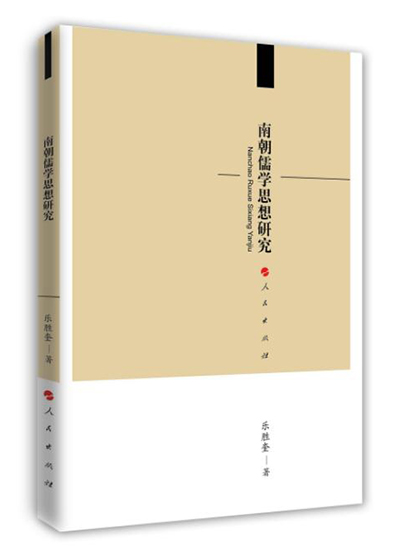A study of Confucianism in Southern Dynasties

Research on Confucianism in the Southern Dynasties
As an important link of Confucianism in the Wei, Jin, Southern and Northern Dynasties (220–589) lasting for hundreds of years, Confucianism in the Southern Dynasties (420–589) played a connecting role in summarizing Han Dynasty (202 BCE–220) Confucianism and Wei and Jin (220–420) metaphysics, and in developing Song (960–1279) and Ming (1368–1644) Neo-Confucianism.
Research on Confucianism in the Southern Dynasties, by Yue Shengkui, an associate professor from the School of History and Culture at Hubei University, proceeds from the stance of the Axial Age theory proposed by German philosopher Karl Jaspers, to argue that the decline of Han Dynasty Confucianism can be partly attributed to Confucian theoretical defects of self-reflection on human nature.
In the views of Han Confucian scholars, human nature originated from the empirical qi [psychophysical energies that permeate the universe] of yin and yang and the five-element system. Human nature and the source of goodness are only empirical instead of transcendental. If the transcendentality of natural laws cannot be injected into the source of goodness in human nature, then the latter, in lack of transcendentality, cannot be the internal basis of the moral and ethical system of Confucianism. Confucian thought of the Southern Dynasties formed, developed, and matured in the process of facing up to the above-mentioned theoretical defects and seeking its new self-development direction.
The author divides Confucianism in the Southern Dynasties into three different schools. The first refers to the traditional Confucian school, which inherited traditional Han Confucianism, represented by He Chengtian in the Liu-Song era (420–479) and Fan Zhen in the Nan Liang era (502–557). The second centers on the thought of ritual studies in traditional Confucianism, represented by Lei Cizong in Liu-Song, Wang Jian in the Nan Qi era (479–502), and Huang Kan in the Nan Liang era. The third is the school of Neo-Confucianism, improved by incorporating elements of Buddhist thought. Yan Yanzhi and Zong Bing in Liu-Song and Xiao Yan (Emperor Wu of Liang) in the Nan Liang era were representative figures.
The three different schools were reflections and efforts made by the Confucians to meet historical requirements at the time. These endeavors gradually converged during the late Southern Dynasties and the Sui (581–618) and Tang (618–907) dynasties. Absorbing the intellectual essences of Taoism, Buddhism, and other schools of thought, Confucianism ultimately realized the leap of its own thoughts, ushering in a new stage of development.
Guo Qiyong is a professor from the School of Philosophy at Wuhan University.
Edited by YANG LANLAN

 PRINT
PRINT CLOSE
CLOSE